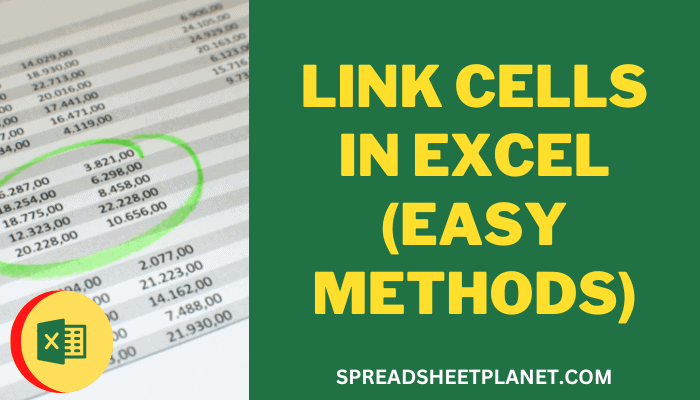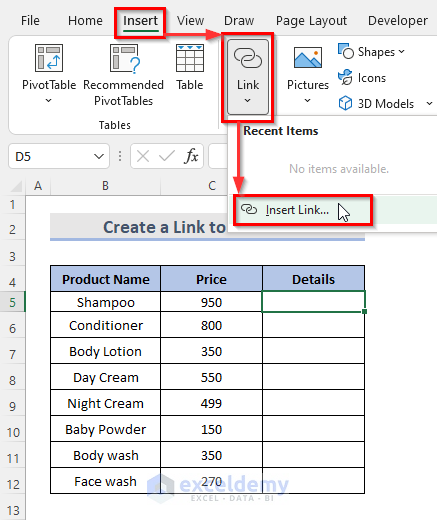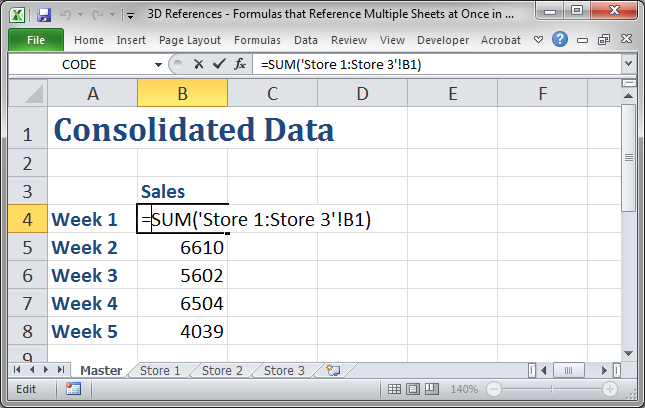5 Ways to Link Cells Between Excel Sheets Easily

Managing data across multiple Excel sheets can be daunting but fear not—linking cells between sheets is a skill that can drastically improve your efficiency and data organization. Whether you're consolidating financial reports, managing large inventories, or organizing employee data, linking cells provides a dynamic approach to maintain up-to-date information across your spreadsheets. Let's delve into five ways to achieve this efficiently.
1. Using Cell References

The most straightforward way to link cells between sheets is by using cell references. Here's how you can do it:
- Open the destination sheet where you want the linked data to appear.
- Click on the cell where you wish to display the linked value.
- Type the equals sign (=) to start the formula.
- Switch to the source sheet by clicking on the sheet tab.
- Select the cell containing the data you want to link. Excel will fill in the reference path, something like
=Sheet1!A1.
🔍 Note: If you move or rename sheets, you'll need to update these references manually.
2. Using Formulas

Excel supports various formulas that can link data not just within a workbook but across different workbooks. Here are some common ones:
- SUM(): Adds up numbers across sheets, e.g.,
=SUM(Sheet1!A1:Sheet5!A5). - AVERAGE(): Calculates the average of selected cells from different sheets.
- VLOOKUP() and HLOOKUP(): Retrieve data from another sheet using lookup values.
| Formula | Usage |
|---|---|
| =SUM() | Sum across multiple sheets |
| =AVERAGE() | Average across multiple sheets |
| =VLOOKUP() | Vertical lookup within another sheet |

📝 Note: For cross-workbook links, always ensure both workbooks are open, and be cautious about file paths changing.
3. 3D References

3D references are an advanced way to link data across multiple sheets simultaneously. This is useful for summarizing data:
- Select the cell where you want the total or summary.
- Type in your formula, and then use a range of sheets by dragging the sheet tab, e.g.,
=SUM(Sheet1:Sheet12!A1)sums A1 from Sheet1 to Sheet12.
This method is particularly effective for aggregating data like monthly sales, departmental budgets, or project costs.
4. External Links

To link cells from different Excel files:
- Open both the source and destination workbooks.
- In the destination workbook, start with the equals sign (=).
- Switch to the source workbook, select the desired sheet and cell. Excel will form a link like
=[SourceFile.xlsx]Sheet1!A1.
This method keeps your data synchronized, updating automatically when the source workbook changes.
💾 Note: External links can become broken if the source file is moved or renamed. Regularly check link integrity.
5. Using Data Tools

Excel's built-in data tools like 'Consolidate' or 'Power Query' can help in linking or summarizing data:
- Consolidate: Summarize data from multiple ranges into one master sheet. You can consolidate by position or category.
- Power Query: For more complex data transformations, especially from external sources, Power Query allows you to connect, extract, and transform data from various files and databases.
These tools provide flexibility and automation, making data management less manual and error-prone.
⚙️ Note: Power Query is part of Excel's Power Tools, which you might need to enable if not already active.
To wrap up, linking cells between Excel sheets not only saves time but also ensures data integrity across your entire workbook. By utilizing cell references, formulas, 3D references, external links, and data tools, you can create a robust, interconnected dataset that reflects real-time changes, reduces errors, and improves your data analysis capabilities. Now, managing large datasets or coordinating with colleagues across different spreadsheets becomes a seamless process.
Can you update linked data if the source sheet is closed?

+
No, for external links, both the source and destination workbooks need to be open for real-time updates.
What happens if I rename or move a sheet with links?

+
You’ll need to manually update all references to reflect the new sheet name or location.
How do I break a link in Excel?

+
To break a link, you can use the Data > Edit Links command in Excel to remove the link or replace it with static data.
Are there any risks with using external links?

+
Yes, if the source file is moved, renamed, or deleted, the links can break, leading to error messages in your workbook.
What’s the difference between Power Query and VLOOKUP for linking data?

+
Power Query is designed for more complex data transformations and can link data from multiple sources, whereas VLOOKUP is simpler but limited to data within Excel sheets.



